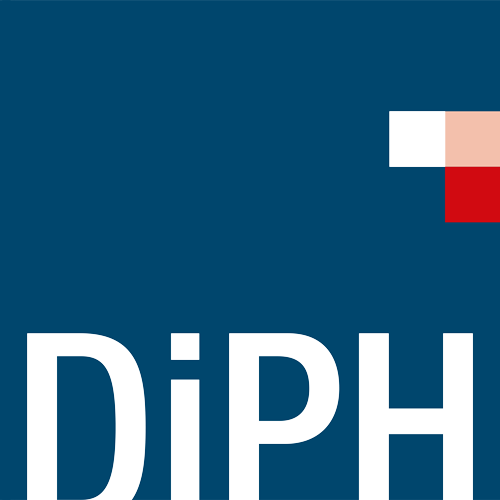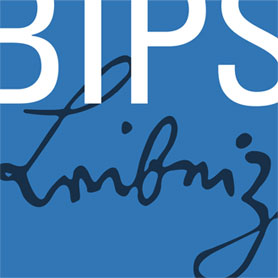Structure of LSC DiPH
The efficient and streamlined governance structure established during the initial phase remains intact, with minor adjustments to align with the new work program and collaborations. The Board of Directors (BoD) retains its composition of two representatives each from BIPS (Zeeb in public health; Haug in clinical epidemiology) and two from the University of Bremen (Schultz in computer science; Schüz in public health). Hajo Zeeb continues as the Speaker of LSC, alongside Co-Speaker Benjamin Schüz. The BoD's oversight extends to a Steering Committee (SC), which includes representatives from each research cluster (speaker and postdoc), two ECRA representatives (ECRA speakers), and the coordinator responsible for overall management. All participating institutions are duly represented in this committee. Annual general assemblies are convened during the retreats.

BU: Governance structure of the LSC DiPH (red: external bodies, blue: internal bodies).
The Early Career Research Academy (ECRA) maintains its existing structure and elects two speakers. The LSC DiPH transfer office operates with a part-time public relations and transfer manager, bolstered by a part-time web designer.
LSC DiPH remains in collaboration with its two advisory boards: The Scientific Advisory Board (SAB) contributes strategic insight and feedback on the work program through regular progress reports shared during annual SAB meetings. Our existing SAB members have been invited to continue their engagement into Phase 2: Julia Dratva (public health, University of Applied Sciences, Winterthur, CH and University of Bale, CH); Dirk Brockmann (epidemiology/complex systems, Humboldt University and Robert Koch Institute, Berlin, DE); Garrath Williams (philosophy/ethics, University of Lancaster, UK), Anna Odone (public health, University of Pavia, IT), and Thomas Hain (computer sciences, University of Sheffield, UK).
The Stakeholder Advisory Board (StAB) comprises representatives from various sectors in public health (health insurance, technology/digital media, health economy, regional health and social policy makers). This board offers insights from user and stakeholder perspectives, influencing digital public health advancements.
As an innovative addition, the Strategic Horizon Scanning group (SHS) is being introduced. Comprising 3-4 experts within the campus, the SHS regularly monitors policy and institutional developments relevant to LSC DiPH's research. It proactively engages potential new partners at the national and international levels, maintaining a continuous exchange with funding bodies. The SHS reports to the SC and BoD biannually, supporting LSC DiPH's growth, strategic positioning, and internationalization.






